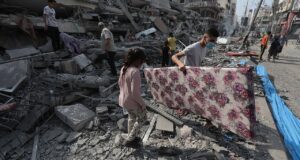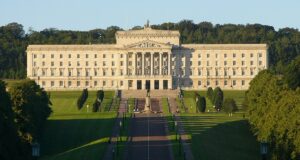By Jacob Sharpe – Senior Fellow
18th June 2013
Iran is a country that adheres very closely to the democratic principle of ‘one man, one vote’. Perhaps a little too closely, in fact, inasmuch as that one man is Supreme Leader Ayatollah Ali Khamenei. In the words of Ahmad Alamolhoda, a senior cleric who leads Friday Prayers in Mashhad, “Only with the approval of Ali Khamenei can 24 million, or even 240 million votes for a president have any meaning. Otherwise they count for nothing.”
After the 2009 presidential ‘election’, in which Mahmoud Ahmadinejad reportedly won with more than 24 million votes (or was it 16 million? Or 13 million?), few Iranians have any illusions about the legitimacy of elections in the Islamic Republic. Unsurprisingly, reports coming from inside the country indicate that most Iranians chose to boycott last Friday’s vote, with only a handful of people turning up to cast their ballots at inner-city polling stations.
During the campaign period, Khamenei had repeatedly implored his subjects to participate in Iran’s sham election by insisting that “a vote for any of these candidates is a vote for the Islamic Republic and a vote of confidence in the system.” Ironically, turnout might have been higher if he had kept his mouth shut. Since it was his own Interior Ministry which found in 2002 that 94 percent of Iranians do not support the Islamic Republic and have no confidence in the system of clerical rule, he really ought to have known better.
How, after all, could anyone have any confidence in a system that arbitrarily disqualifies 98.9 percent of the candidates in an election? Moreover, of the 8 contenders who were permitted to run, all had sworn allegiance to the Supreme Leader and the theocratic ideology of Velayat-e-Faqih. The winner, Hassan Rouhani, is so devoted to Khamenei that his son committed suicide out of shame.
There is one presidential wannabe, however, who differs markedly from the others. With a platform of freedom, democracy, secularism, gender equality, peace, the rule of law and human rights, her chances of winning (or even contesting) any election held in the Islamic Republic are precisely nil. Everything she stands for is anathema to the mullahs ruling her country, who had the foresight to round up and imprison many of her supporters before last Friday’s sham election began. Her name is Maryam Rajavi, President-elect of the Iranian Resistance.
This Saturday, tens of thousands of Rajavi’s followers – Iranians from across the world – will congregate in Paris for their largest ever international gathering. The event is organised by Iran’s democratic parliament-in-exile, the National Council of Resistance of Iran (NCRI), whose more than 500 members – half of whom are women, and who include Kurds, Baluchis, Armenians, Jews, Zoroastrians and others – are at the forefront of the struggle for a free Iran.
These people – and Maryam Rajavi in particular – represent the interests and aspirations of the Iranian nation far better than any of the mullahs’ puppets in Tehran ever will. Western policymakers should heed their message.
 Human Security Centre Human Rights and International Security Research
Human Security Centre Human Rights and International Security Research



